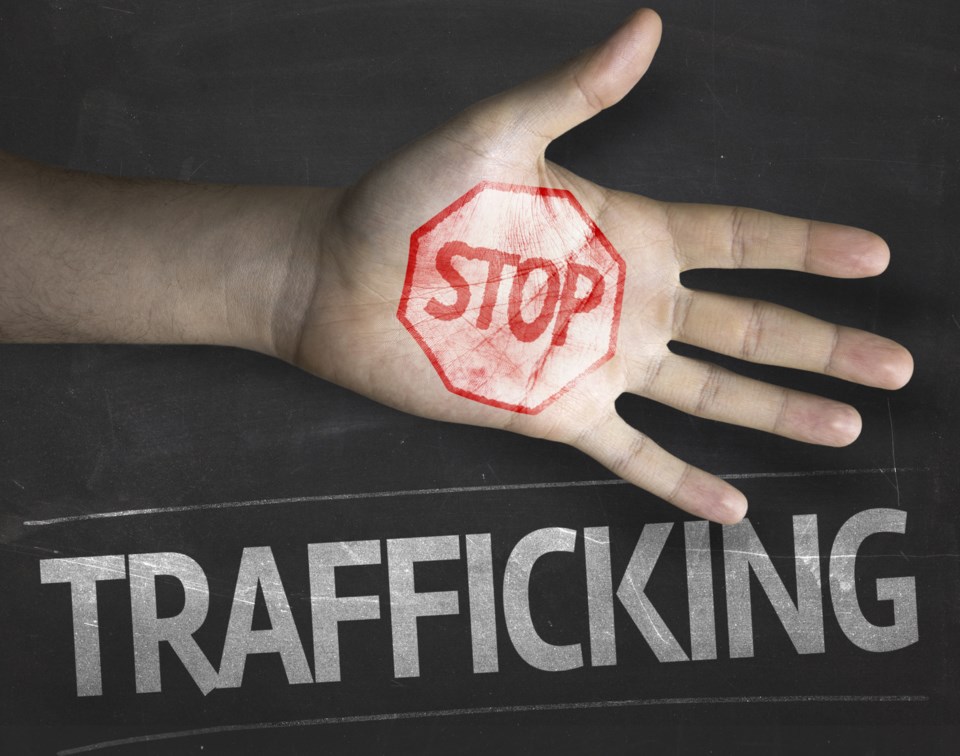Their stories are all the same. Tales of poverty, ignorance, and helplessness. Some of the faces are sad, grief shining through their dark eyes, faint wrinkles lining the skin of their foreheads. Other faces are blank, unreadable, and empty, such that one had to dig deep to discover the well of desolation buried deep in their soul.
All of them had gathered at the NAPTIP zonal office under a common denominator- human trafficking. Men, women, and children, all with different stories of exploitation. They had travelled all over the world in search of greener pasteur- Togo, Libya, Saudi Arabia, Oman, Qatar, Italy, spain, Brazil, Australia and even Niger Republic!
Many of the stories were gut-wrenching but two, in particular, made their mark on me.
The first was a young 27-year-old woman named Esther*. She approached me looking forlorn. When I asked what her problem was, she looked at her feet and said that she suspected she had genital warts. Dr google had made the diagnosis for her and when I saw it, confirmed that it was indeed warts. Three years ago, she was a 200-level undergraduate at a university in Kano when she met her boyfriend. The ‘boyfriend’ had a lucrative business in Sabon Gari, selling plumbing materials. Esther admitted that he was very loving, caring and generous with money. During one of the nationwide university strikes, he convinced her to travel with him to Brazil where he bought his products. He told her that he would get her a job as a waitress there and from what she made, could enrol at a local university. The boyfriend promised to supplement her income in Brasilia once she arrived, and she promptly agreed. He convinced her to keep her ‘Japa’ plans a secret from her parents and friends because of ‘bad belle’ people with the promise that she could call them on arrival.
- Demolition: I could have slapped Kwankwaso at Aso Rock – Ganduje
- Gov suspends last-minute appointments into Civil Service
Esther and her boyfriend left for Togo from where, he claimed they would board a flight to Brazil. It would be cheaper he argued. In Lome, her ‘boyfriend’ induced her to work as a street prostitute to raise cash for their trip. After a week’s stay there, they began the difficult trip across the desert to Libya with other would-be migrants. At the border to Libya Esther’s ‘boyfriend’ – in fact, her exploiter – again claimed they were short of money for the onward journey to Brazil. This time he left her in the care of a migration broker while he returned to their home country – so he claimed – to raise more money. Initially Esther suspected nothing, but when she tried to leave the broker’s lodge she was seized and thoroughly beaten for “breaking the rules”.
It was then that she learnt that her exploiter had in fact sold her to the broker and that she would have to pay the impossible sum of US$ 5,000 for her freedom – her “purchase price” plus the costs she had incurred while at the broker’s camp. She was told that she –like the other 20 to 30 girls in the broker’s custody – would have to work as a prostitute to pay off her so-called debt and buy her freedom.
While held by the broker, Esther was repeatedly abused, raped and forced to serve as a prostitute; usually her clients used no condoms. She longed to return home yet was ashamed by what had happened to her. Eventually she managed to secretly telephone her younger sister and relate her predicament; her sister in turn alerted the police in her hometown. When official attempts to rescue Esther failed, her father sold his land and paid the money demanded by the broker and purchased her freedom. Esther’s ‘boyfriend’ was arrested and charged after several weeks of surveillance but was acquitted on the ground that it could not be proved beyond reasonable doubt that Esther had been sold. Upon her return, Esther was diagnosed with various sexually transmitted infections including HIV and genital warts.
However, that was not the intriguing part of her story. When asked what she was doing now, she said she currently worked as a hairdresser during the day and as a commercial sex worker at night. Esther had developed what we call ‘learned helplessness’.
In psychology, learned helplessness is a state that occurs after a person has experienced a stressful situation repeatedly. They come to believe that they are unable to control or change the situation, so they do not try — even when opportunities for change become available. The causes of learned helplessness include prolonged exposure to traumatic events and stress perceived as uncontrollable. Those who have experienced trauma, abuse, neglect, or poverty are more at risk of symptoms of learned helplessness than others. Someone in a state of helplessness may feel, for example, that nothing they do matters. And so, despite the fact that she had returned home, and her family had involved NAPTIP, Esther still felt that she was damaged and helpless beyond repair.
It was all so heartbreaking. Together with the gynecologist and psychiatrist, we encouraged her, counselled her and advised her on ways to cope with her helplessness. I only hope she continues to come for follow-up.
The second story was from a man called Danladi.* From the get go, Danladi knew what he was getting into. He was a thirty-one-year-old man who was born into abject poverty in rural Kaduna. His father was a peasant farmer who could barely afford to feed his three wives and sixteen children. Danladi was the seventh child and had struggled with menial work throughout his life and so, when he heard of a man recruiting young men to work at a construction site in Saudi Arabia, he hurriedly enrolled. The man, simply referred to as ‘Alhaji’ promised to get him a passport, visa and tickets to leave the country in a month. In exchange, Danladi would give him 75% of his wages in the first year, 50% in the second year, and 25% of the third and fourth years during his four year tenure. The idea of a job and a chance to live in Saudi Arabia seemed heaven-sent, and so he quickly agreed.
Danladi spent seven years in Saudi. Together with other workers, they were accommodated in a cramped caravan, sometimes six of them together. Their “wages” soon shrank to the point where they were earning less in a day than they should have been earning per hour. They were working long days – sometimes 12 to 14 hours – six days a week, laying asphalt and doing stonework around private houses. Whenever they were not working, they had to go door-to-door in residential neighbourhoods, trying to drum up new business. Danladi and his friends were shipped around so much that they had no idea where they were or even which city, they were in. Their employers often treated them abusively, shouting at them, hitting them, and even striking them with a spade. They were warned that if they tried running away, they would be fetched back and beaten.
Danladi tried it anyway. We nearly fell down laughing when he narrated to us how he and his friend hid in a sack of potatoes that was to be transported to Jordan. They hid in a truck and nearly died when bigger sacks were piled on top of them. At every town before they reached their destination, more and more sacks were piled on top of them so that by the time they reached the Durah border, they had passed out completely!
Authorities promptly took them to the hospital, from where they were handed over to relevant authorities and subsequently deported.
NAPTIP and their supporting partners are doing a wonderful job with victims of human trafficking. I can only imagine what these victims go through.
Truly, the grass is not always greener on the other side.




